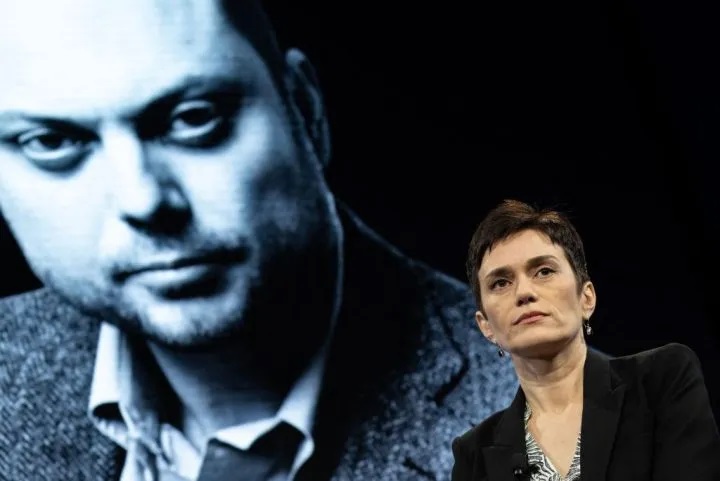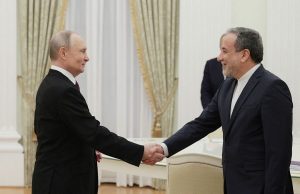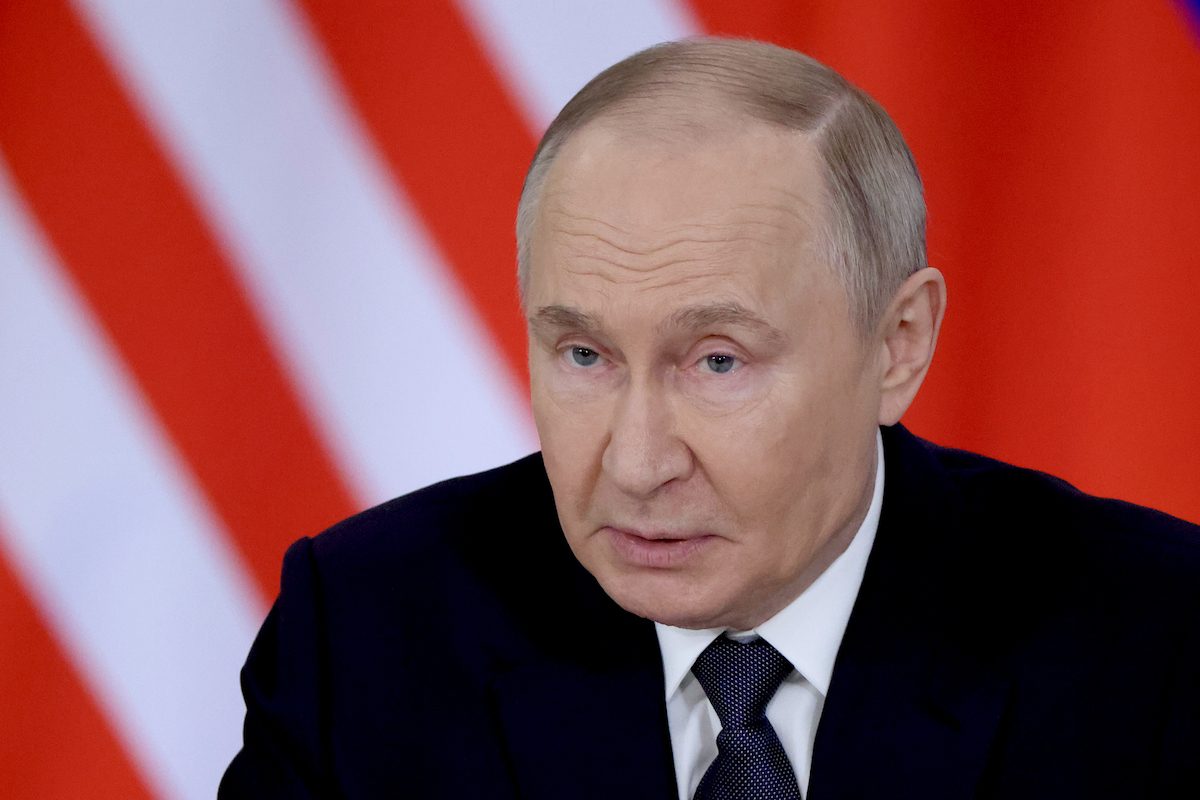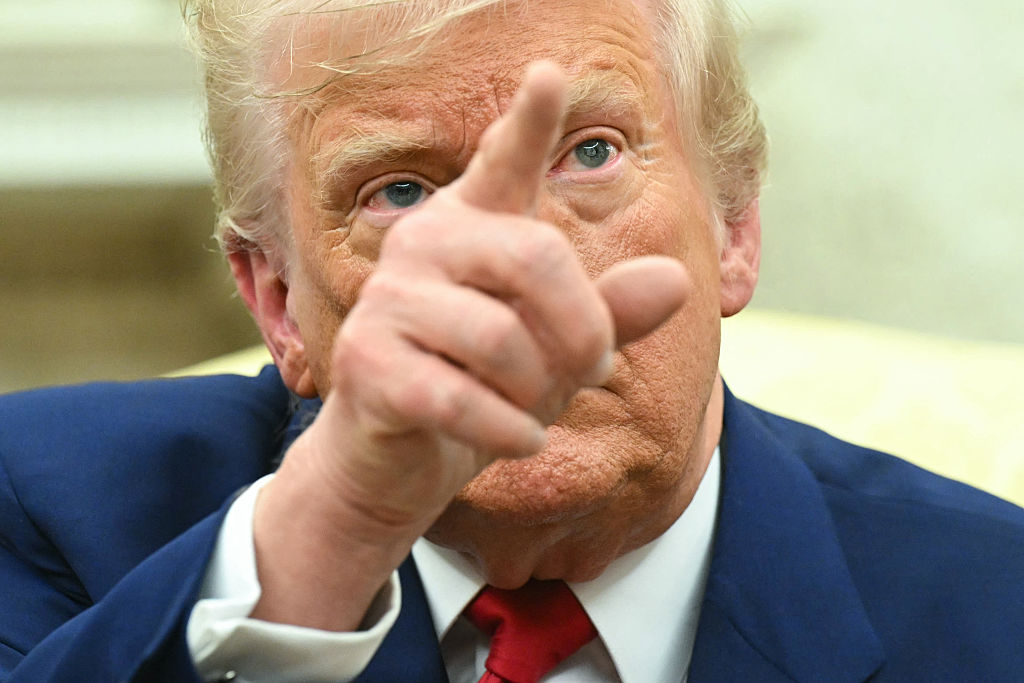Opposing Vladimir Putin is a lethal business. The world was reminded of this last week after the sudden death of the opposition leader Alexei Navalny. The Russian authorities are blaming Navalny’s demise on “sudden death syndrome,” but whether it was outright murder or simply the result of three years spent in Russia’s penal system, the responsibility lies squarely with Putin.
The danger of standing up to Putin is something the Russian-British journalist and author Vladimir Kara-Murza knows only too well. An active campaigner for Russian democracy, Kara-Murza was an ally of Navalny. He is responsible for convincing the West to sanction Putin-friendly oligarchs. In the early 2010s he worked with Boris Nemtsov to introduce the Magnitsky Act in the US and similar legislation across the West. In the past decade, he has survived two suspected poisonings. Last April he was given a twenty-five-year jail term for speaking out against the Ukraine war, the longest sentence handed down to a political prisoner since the collapse of the Soviet Union. With Navalny gone, he has become the Kremlin’s most high-profile detainee.
Kara-Murza was first jailed for criticizing the war in 2022, then, at his trial a year later, he was found guilty of spreading “false information” about Russia’s army, participating in an “undesirable” organization and treason. Russia has since kept him in isolation at a Siberian prison colony in Omsk, and at the end of last month he was secretly moved, resurfacing a day later in a harsher colony close by. It was an alarming twenty-four hours during which his family and legal team were unable to contact him. He told his lawyer the move was his punishment for refusing to “rise” when asked to by a guard.
‘They need to find ways to prevent people being used as bargaining chips in these political games’
This didn’t come as a surprise to his wife, Evgenia, forty-three, “The regime is afraid of anyone who dares speak their mind, even from behind bars,” she says on the phone from the family home in Virginia, in the US, where she is based with the couple’s three children. “The authorities are doing everything they can to isolate these people… This is why many anti-war activists and political prisoners have been put behind bars for speaking out against the war and the regime.”
What distinguishes Kara-Murza from other political prisoners in Russia is that he is a British citizen. He moved to Harrow, Greater London, at the age of fourteen when his mother married an Englishman. He went to a local school, then read history at Cambridge. Since his imprisonment, Evgenia has been lobbying the British government to help. A date has been set for her to meet Lord Cameron soon (which makes her “very happy”). After news broke about Kara-Murza’s disappearance last month, the foreign secretary said he was “deeply concerned” for him.
British embassy representatives in Moscow were banned from the courtroom during Kara-Murza’s trial. His appeal failed, prompting Rishi Sunak to speak out on Twitter. “This is desperate and unfounded,” the prime minister wrote. “Rejecting Kara-Murza’s appeal is unjustifiable. He should be released immediately. The United Kingdom stands with him and his family.”
Evgenia says: “I was a bit surprised that it took Sunak over a year [after becoming prime minister] to make a statement about an unlawfully detained British citizen. But at least he made it in the end.” She thinks the British government could be doing more to get her husband released. Has the government’s response been lackluster because it views Kara-Murza as a Russian activist, not a British citizen? “I hope this is not the case,” Evgenia says. She believes Britain should establish an office to deal exclusively with British citizens wrongfully detained abroad. It’s a proposal that is supported by the chair of the foreign affairs select committee, Alicia Kearns.
“They need to try and find ways to prevent this from happening in the first place,” Evgenia says. “They need to find ways to prevent people being used as bargaining chips in these political games.” And if she can’t make them listen? “There is always a hunger strike, right?” She appears to be only half-joking.
Evgenia is deeply concerned about the conditions her husband is being held in. At the first prison, she says he was living in “constant torture.” Similar to Navalny, Kara-Murza was kept in a cell measuring approximately ten by seven feet, with a bed he was only allowed to pull down at night; the only furniture was a backless stool. He wasn’t allowed to rest during the day and was given just ninety minutes daily to exercise in a small courtyard. Guards barked orders at him through a tannoy in his cell.
“He does not have any rights to phone calls or visits,” Evgenia says. Before Christmas, he hadn’t talked to his kids “in months.” Over the holiday period he was granted a fifteen-minute phone call with them: five minutes with each child. Evgenia timed each call with a stopwatch so as not to deprive any of them of time with their father. The only visitor Kara-Murza is allowed is his lawyer, who comes for an hour a week. Before his recent prison move, Evgenia could only communicate through letters: he was given ninety minutes a day to read and reply to as many letters as he could.
After the two suspected attempts on his life (when doctors found traces of heavy metals in his system), Kara-Murza developed polyneuropathy, a degenerative illness that causes a loss of sensation in the limbs. His treatment in prison, Evgenia says, is exacerbating his symptoms. “According to his lawyer, he has lost at least 25kg [55 pounds],” she says.
Both attacks on him occurred in Moscow. A Bellingcat investigation has claimed the same assassination squad was behind them as tried to kill Navalny in 2020. The first time, in 2015, Kara-Murza fell ill after eating at a restaurant in the city center. His heart, lungs, kidneys and liver failed and he was placed on life support in an induced coma. Eventually he was transferred to the US for treatment, after which he needed to walk with a cane for a period. Two years later he was treated in the same Moscow hospital, where he was admitted to intensive care before leaving Russia for further rehabilitation.
Although he regularly traveled for work, Kara-Murza had been based with his family in the US before returning to Russia after the invasion of Ukraine. Why did he choose to go back at such a dangerous moment, particularly considering the previous attempts on his life? “He believes he has to share those risks and challenges faced by people back home to have the moral right to speak on their behalf and to call on them to continue resisting this atrocity,” Evgenia says.
Navalny’s death has shone a new light on the sacrifices he, Kara-Murza and other Russian democracy campaigners have made for the cause. Many regard them as heroes and martyrs. As more details of Navalny’s prison experience and death emerge, it is a reminder that Kara-Murza and other political prisoners like him are also extremely vulnerable.
As long as Putin remains in the Kremlin, Kara-Murza will remain behind bars. For Evgenia, there is no choice but to carry on campaigning for her husband. “You fight for that person, and you fight for your family, and you fight for your kids, and you make sure that you do everything possible to make sure that the person you love survives,” she says. “It was not a choice that I was making. Considering the different alternatives, it was a given.”
This article was originally published in The Spectator’s UK magazine. Subscribe to the World edition here.


























Leave a Reply